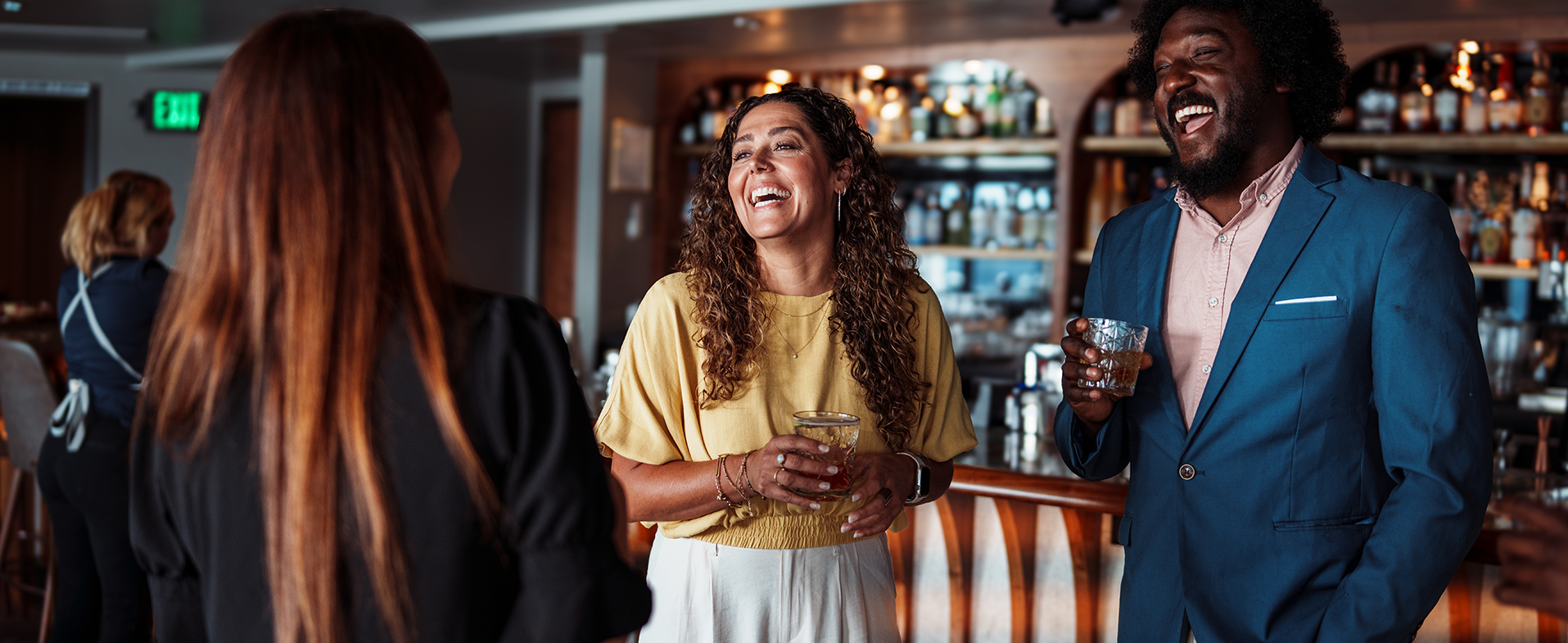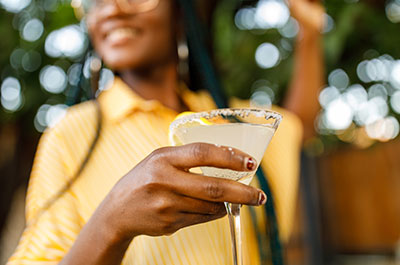After a long day at work or a stressful week, a drink or two at home or out with friends might sound like just what you need to regroup. But what happens when a casual drink on a Saturday night turns into a blur – or ends up being a night you do things you wouldn’t normally do – or worse, that you regret?
Sometimes known as a “weekend” alcoholic or binge drinker, this issue occurs when casual drinking turns into something more – a drinking problem, dependency issue or true alcoholism, says Tyler Trahan, M.D., an internal medicine and addiction specialist at Henry Ford Health. Moderate drinking is defined as one drink per day for women and two drinks per day for men. Exceeding that puts you at risk for becoming an alcoholic. Here, Dr. Trahan shares red flags to watch out for.
Signs You Might Have A Drinking Problem

See An Addiction Specialist
- You drink alone – or you use alcohol as a coping mechanism.
Having a glass or two of wine by yourself while reading a good book, taking a bath or catching up on your favorite show doesn’t mean you have a drinking problem. The issue is when drinking alone becomes a habit – or when it's habitually used to make you feel better. “When drinking alone turns into an isolation factor, that’s when it's concerning,” says Dr. Trahan. “Using alcohol as a coping mechanism is not only unhealthy, but it can indicate there is a further underlying issue.” - You do things you wouldn’t normally do while sober.
While the amount of alcohol you drink is a factor in determining if you could have a drinking problem, it's more about how the alcohol affects you. “If you asked someone while sober if they would drive after having a few drinks, they would most likely say no,” explains Dr. Trahan. “But for someone who might have a bit of a problem, after drinking, they would justify drinking and driving.”
If your drinking causes you to do things you wouldn’t normally do – or that go against your judgement – you should look at your consumption and how your drinking affects you. Not remembering events as they happened or completely blacking out while drinking is also cause for concern. Doing something spontaneous while intoxicated is one thing, but putting the safety of yourself or others at risk or harming your relationships is completely different. - You’re drinking for the buzz.
Forget socialization – if you are going out and drinking simply for the feeling alcohol provides, you could be headed toward trouble. “When someone is seeking the mood altering effects or uses alcohol as a coping mechanism or in isolation, that could be a red flag for an addictive type of behavior,” says Dr. Trahan. - You are not able to completely stop or limit your drinking.
If you truly think your drinking is becoming a problem, try limiting yourself to only a drink or two. Or take it one step further and stop drinking entirely – even for just a temporary amount of time. “If you have a problem with something, generally you should try stopping to see how you feel,” says Dr. Trahan. “If the idea of stopping your drinking causes you to feel defensive, there may be a problem.”
Heavy drinking – even binging one or two nights a week – is harmful for your health in a myriad of ways. Consequences like liver damage, blood pressure issues along with vomiting and seizures from excessive drinking can all occur if you consume too much. And recent research shows that even moderate drinking can increase your risk of cancer. If you feel you need help, don't hesitate to reach out to a medical professional for help.
Reviewed by Tyler Trahan, M.D., an internal medicine and addiction specialist who sees patients at Henry Ford Hospital - K Building and Henry Ford Maplegrove Center.


